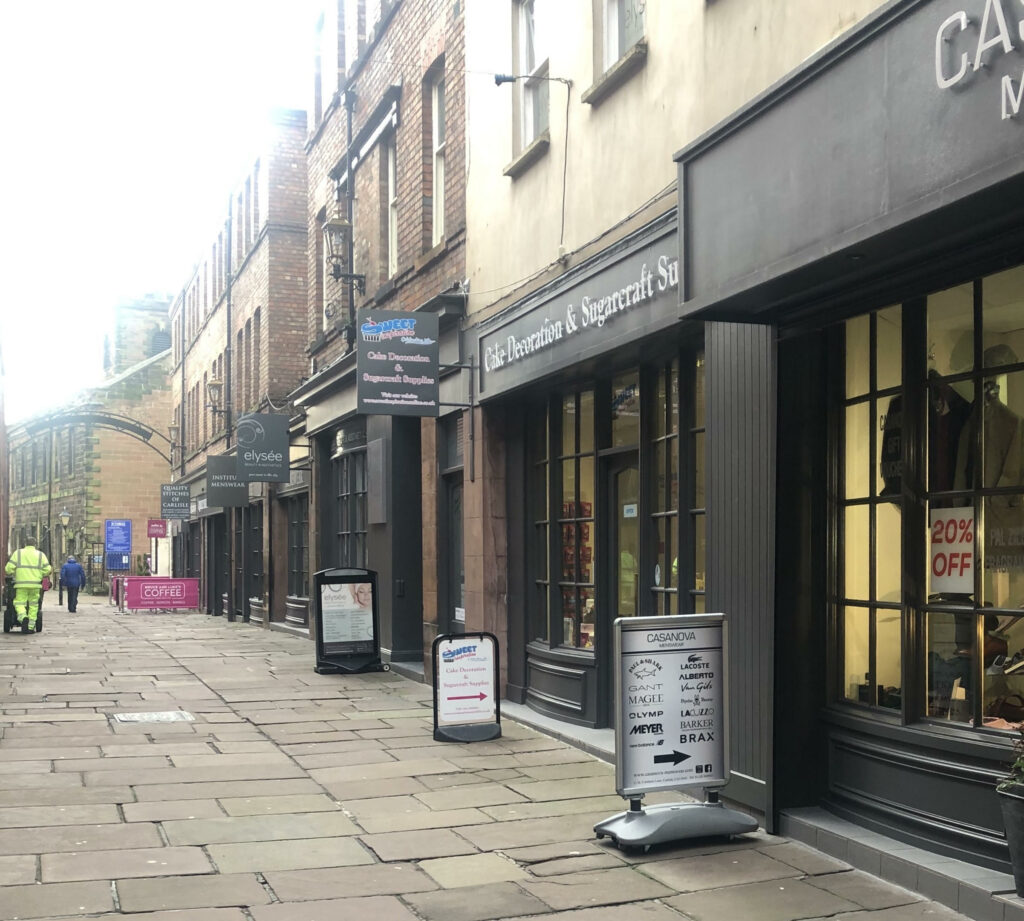Future of the high street
High streets are changing. Our high streets should focus on the community needs rather on slightly modifying what we have always done. When faced with a change in business circumstances ,Thomas Jardine & Co always use Strategyzers excellent Business Model Canvas. This focuses our attention on end users rather on our portfolio of services and products. In business life it is not a case of doing what you have always done. It’s about doing what your customer needs to get past their problems and improve their life.
We have to meet the needs of the community in a way that is economically sustainable for both the high street businesses and those businesses or organisations that support them. For this productivity is key. Thomas Jardine & Co has a thing about productivity, Jacqui is an ambassador for Be the Business who are tasked with driving productivity up across the country.
The High Streets belong to a place
There is an extreme diversity in size and scope of our high streets (see Institute of Place Management). They can be servicing a small catchment area with mainly retail services. Or act as an anchor for a vast catchment area offering a wide variety of services. The place the high street is set in is not dictated by political boundaries. Carlisle for example has a catchment area that covers various counties and two countries.
High streets are a community of people
Our high streets are made up of businesses that serve the community that chooses to use them. Our community looks to both the high street businesses and the council to provide a place that meets their needs. We often forget that a lot of the businesses and councils are made up of people who are part of the community. Your high street future will be about true collaboration of all those involved from users to businesses to council and business support.
Productivity
The high street is based on service. Service industries such as retail , hospitality and food traditionally rely on a pool of lower paid workers. So the rise of minimum wage has a disproportionate impact on businesses in that sector that continue to depend on low wage work force . The problem the businesses have is that they are serviced based at a time when consumers are increasingly price conscious. Those businesses that adopt technology can increase productivity. This allows them to upskill their workforce and still offer a degree of personal service. The excellent essays from the Carnegie UK Trust and RSA look at productivity in the UK. Productivity isn’t just about replacing low paid low productive jobs with high paid high productive jobs. It’s about creating an attitude to improving the future of the business and the worker. If business isn’t allowed to focus on this then the future of business and jobs is in jeopardy.
Productivity and the High Street
High Street food and hospitality businesses need more focused support from the ‘business support sector’. From a business perspective:
- Businesses don’t always take up the available support funds because the route to these funds is far from transparent. Do funders offer funding via the usual partners rather than talking to businesses ?
- Businesses don’t always use the training support offered because the support can be ‘off the shelf’. Do trainers deliver what they always have rather than what the business needs ?
- Business tend to spend a lot of time focusing on the potential impact of regulations which takes them away from focusing on business productivity. With limited resource do regulators rely on business keeping up with regulations rather than working with business to mitigate the risk the regulations is set to deal with?
- If a business wants to expand it has to deal with a raft of different bodies. Do councils with limited resources focus on delivering individual services (sometimes with conflicting recommendations) rather than offering a one stop solution for individual businesses?
No-one is right or wrong here. That doesn’t matter. If we don’t all work together to improve the productivity of the high street so that it can offer the services its communities need then we all lose.
Future High Street Fund
The governments new Future High Street Fund which is open to a 100 high streets across the country. It recognises that the private and public sector need to work together.
It is easy to say that collaboration between the public sector and private sector is key to the future of our high streets. We are all part of the same community, where we work together and focus on the end user of our high street we will have a sustainable future. Where we don’t we can always blame each other.
